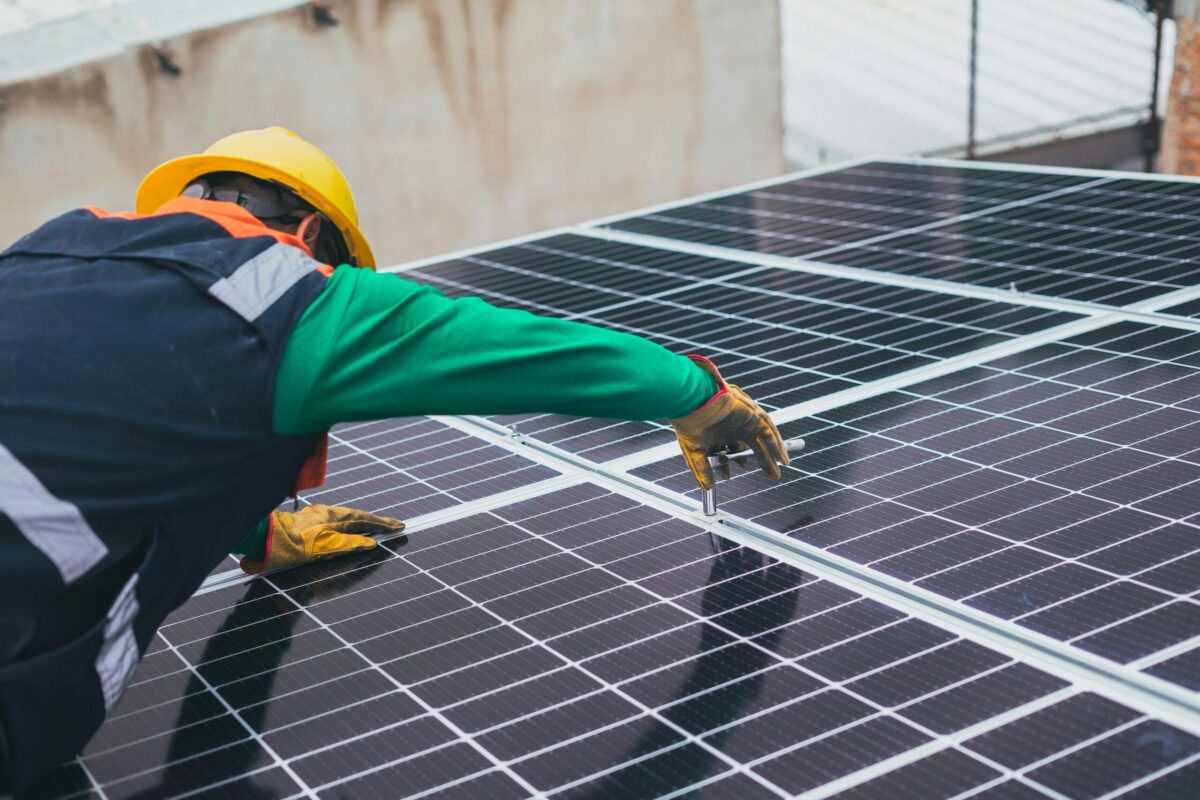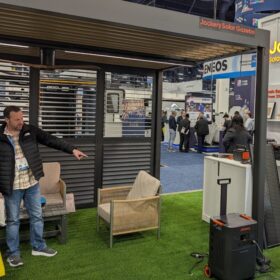Dragonfly Energy, a manufacturer of deep cycle lithium-ion batteries, has been awarded a patent for its dry powder coating layers used in the electrochemical cell of its battery construction. The patent award is a major step forward toward the ramping up of the company’s domestic manufacturing of all solid-state battery cells.
Dragonfly’s patent adds to the company’s portfolio focused on dry powder coating of lithium ion battery electrodes. The powder coating system is part of the lithium battery manufacturing process, replacing traditional methods, which require heavy machinery by forming a particle layer on a substrate through a dry powder coating spray process.
The company believes this coating process will enable it to significantly reduce space and cost for lithium-ion battery manufacturing. More importantly, the process is integral to scalable production of a non-flammable solution for lithium ion battery applications.
Dragonfly reports that it has received or holds pending patents to more than 30 battery component technologies as of June 30, 2022.
“We have been developing dry powder coating processes for lithium-ion battery production for over a decade, and this newly patented process is a key piece of the foundation for manufacturing our all solid-state batteries here in the U.S.,” said Dr. Denis Phares, chief executive officer of Dragonfly. “Developing a domestically produced battery is critical to the country’s grid stability and our ultimate goal of revolutionizing grid storage.”
Dragonfly is currently constructing a pilot production line and running extensive longevity tests for its line of solid state batteries, with the scale up to mass production and battery pack integration on track for 2023 to 2024, according to a recent investor presentation. Its all solid-state batteries contain a solid electrolyte component rather than liquid, making them lighter, smaller, non-flammable, and less expensive to manufacture than conventional batteries.
The company’s patent receipt caps off a momentous year for the battery cell producer. On October 7, Dragonfly completed a SPAC merger with Chardan NexTech Acquisition II valued at $501.4 million and began trading on October 10 on Nasdaq under the ticker ‘DFLI.’
Leading the ‘lead is dead revolution’
Formed in 2012, Dragonfly produces deep cycle batteries and power components under the brand names Battle Born Batteries, Wakespeed and Dragonfly Energy. The company reports that it has sold more than 175,000 batteries over the last four years to the recreational vehicle, marine, work truck, industrial equipment and off-grid storage markets, designed to displace the less environmentally friendly lead-acid battery market. Original equipment manufacturers Thor Industries and REV Group use the company’s batteries.
Over the next five years Dragonfly said it expects an immediate off-grid, RV and marine solutions battery market of $12 billion, while its expanding lithium and solid-state batteries have shown an addressable market of $85 billion across the U.S. Consumers switching from lead-acid batteries to its lithium-iron phosphate (LFP) counterparts is a main business driver for the ten-year old company.
Thor Industries, the largest global RV manufacturer with over 140 brands such as Airstream, Jayco and Keystone, invested $15 million in Dragonfly post-SPAC merger and continues to be an active integrator of Dragonfly’s battery cells.
Dragonfly shares traded at $10.66 per share today, down 19% from $13.16 on October 10 when it started trading, with a current market capitalization of $476 million. The company has over 150 employees and generated $78 million in 2021 revenue.
Under Section 45X of the Inflation Reduction Act, the federal government established an Advanced Manufacturing Production Credit (PTC), which applies tax credits upwards of $31 billion to the production of cathode and anode materials used in lithium-ion batteries and advanced battery minerals sourced in the U.S. A tax credit is also included for the production of battery cells and battery modules in the U.S. based on the capacity of the cell up to $35 per kWh, and in the case of a module is based on the capacity of the module up to $10 per kWh. For a sample 75kWh battery pack, a tax credit of up to $2,625 for the manufacturer of the battery cells and up to $750 for the maker of the modules is available, according to an IRA policy note by law firm Orrick Herrington & Sutcliffe
This content is protected by copyright and may not be reused. If you want to cooperate with us and would like to reuse some of our content, please contact: editors@pv-magazine.com.









LEAD ACID BATTERIES are still the mainstay of many RV and recreational solar plus battery homes. Ease of exchange, robust, deep cycle batteries will be hard to replace if the price is not competitive. lead acid is totally recyclable and has a robust industrial base already serving the public. When any new competitor, to lead acid is introduced, they will have to last longer, be just as easy to change out at end of life and have the recycle infrastructure in place to accommodate the millions of batteries that will cycle through every year. Once they do all that and become price competitive, I will change my 80 deep cycle marine/RV batteries out that have been powering my home for 15 years.
Would be nice to clear up if/how this relates to Tesla’s dry coating tech for lithium ion batteries.